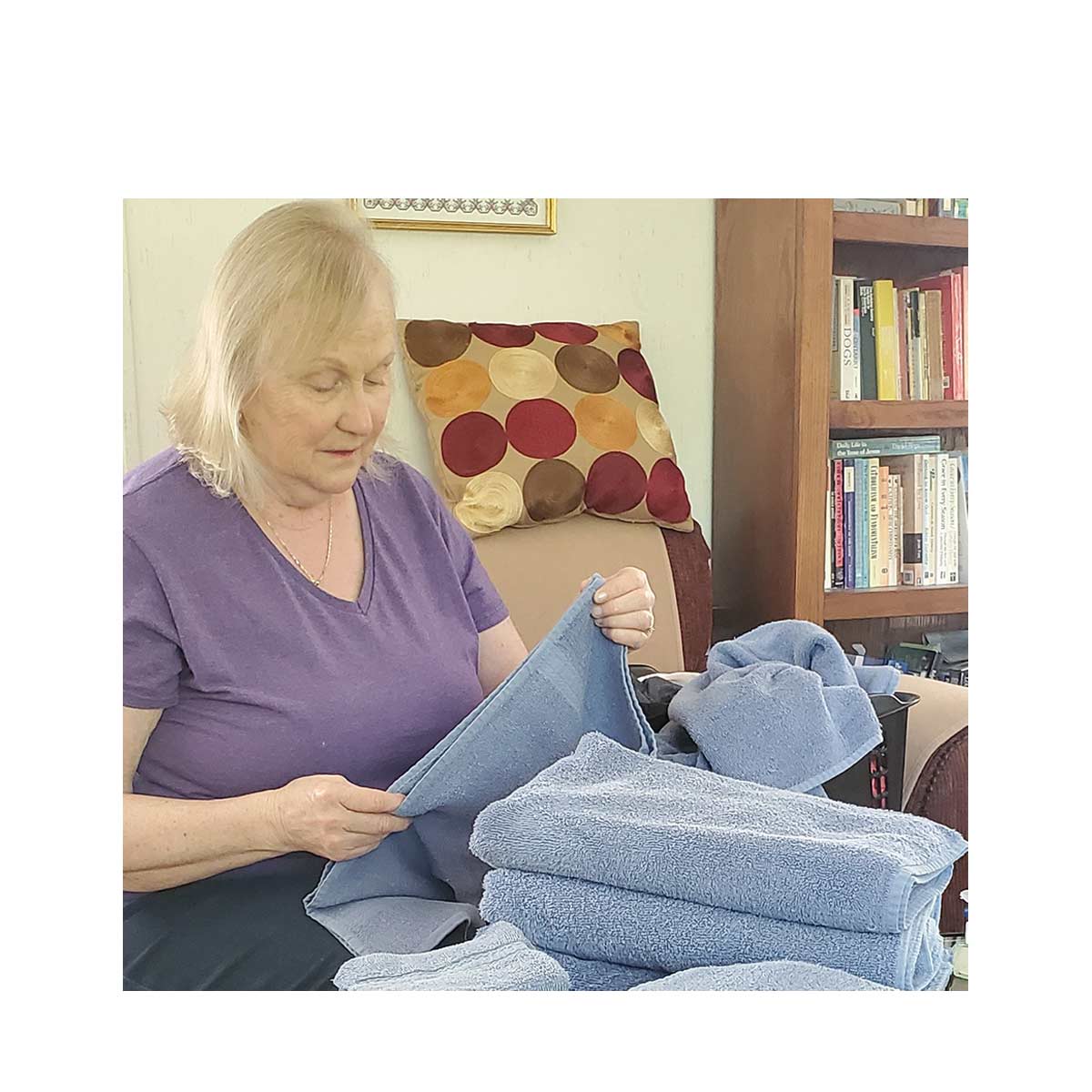This content has been archived. It may no longer be relevant
There was a news clip recently of a shift change at a busy New York City hospital. Dozens of nurses wearing protective gear were filing out of work, shoulders slumped, heads down, obviously spent from caring for coronavirus victims.
Yet there, lined up on either side of the exhausted nurses, was a long line of uniformed police officers—applauding them! It brought tears to my eyes.
The global pandemic can seem overwhelming, but it’s brought loving actions like this everywhere. Countless health care workers, cleaning people, grocery clerks, teachers, parents, and many others around the world are working heroically. Unseen or unnoticed, they help save lives each day.
We can do the same, no matter what our daily work is. When we offer our regular chores to God, it makes a crucial difference.
Catherine Doherty believed the Lord told her, “Do little things exceedingly well for love of Me.” That directive is part of the Madonna House Little Mandate, the community’s way of life.
In my own life, I apply it like this: what I give to God as my “duty of the moment” can help someone else get through their daily duties.
For instance, if I carefully fold the laundry and offer that little action to God with great love, he may use it to help a tired nurse care for one more coronavirus patient.
Years ago, I worked in a high-pressure job, with hardly a minute to think straight. God got me through day after day of work, partly because at any given time, I could stop and remember what the Madonna House community was doing during that day and hour.
At Madonna House, it might have been tea-time, or time for work, Mass, meals, or spiritual reading. I would think to myself, “If Madonna House staffers are doing their duty of the moment right now, then I can do mine.” That solidarity got me through many a tough day.
Obviously, some duties are harder than others. Once when I was a working guest at Madonna House in Combermere, I was assigned to sort donated clothing. Men’s shirts went in one pile, women’s slacks in another, children’s jackets in another, and so on. It was fun at first, but after lunch it got a little humdrum.
By late afternoon, we were finishing up by putting piles of sorted clothing into black garbage bags, kneeling down on them to squish out the extra air, then tying them securely at the top. I was really tired. Those last few bags were the hardest. And somehow, it seemed that the Lord said to my heart, “These mean the most to Me.” I’ve never forgotten that.
Today, when the last load of dishes begs to be postponed, or I’m tempted to put off taking trash out until the next morning, that’s when those little chores mean the most. It requires a little more effort, a little more love. That’s why those tiny sacrifices are more powerful.
We may not be doctors or researchers, but we can all help fight the coronavirus. Our “ammunition” is our duty of the moment. That means the next thing we need to do, hour by hour.
It might be paying a bill, changing a diaper, celebrating Mass, making a far-reaching decision for a whole country, or washing a cup. It’s all the same to the Lord, and I firmly believe he uses everything—absolutely everything—that we give to Him, no matter how small or how unimportant it may seem.
When we think we can’t do much to help, remember that with Jesus, everything counts. When we do it well, with love for him, it’s powerful.
When I fold the laundry, it may help an unemployed bread-winner find work. When I weed the flowers, it may give an exhausted doctor energy to see one more round of patients.
Only in eternity will we know what fruit our loving acts grew here on earth. This is not make-believe or wishful thinking. It’s real.
When we give God the small tasks of our day, done exceedingly well for love of Him, in terms of efficacy, we’re really on the “front lines.”
Mary Nadeau, a friend of Madonna House, writes from upstate New York where she lives with her husband, Deacon Gil Nadeau.





